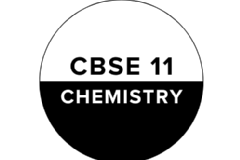What Students Will Learn in Class 11 Maths:
- Sets and Functions: Understand different types of sets, Venn diagrams, and the concept of functions and their types.
- Algebra: Learn quadratic equations, complex numbers, and mathematical induction.
- Linear Inequalities: Solving linear inequalities and their graphical representation.
- Permutations and Combinations: Understand counting principles, factorials, and how to calculate permutations and combinations.
- Binomial Theorem: Learn the binomial expansion and its application in solving algebraic problems.
- Sequences and Series: Study arithmetic progressions (AP), geometric progressions (GP), and their sums.
- Straight Lines: Understand the equations of straight lines, distance formula, section formula, and the concept of slope.
- Conic Sections: Learn about circles, ellipses, parabolas, and hyperbolas, along with their properties.
- Introduction to Three-Dimensional Geometry: Study points, lines, and planes in 3D geometry.
- Limits and Derivatives: Introduction to the concepts of limits, continuity, and derivatives, laying the foundation for calculus.
- Statistics: Learn the basics of statistics, including measures of central tendency, dispersion, and probability distributions.
- Probability: Study conditional probability, Bayes’ theorem, and probability distributions.
Why Students Should Enroll with You:
- Comprehensive Learning: Provide a well-rounded approach to all Class 11 Maths topics, ensuring full syllabus coverage.
- Expert Instruction: Benefit from a highly experienced instructor who can explain complex topics in an easily digestible manner.
- Concept-Based Teaching: Focus on building a strong conceptual foundation that will help students not only in exams but in higher education.
- Personalized Attention: Tailored lessons to suit each student’s learning speed and strengths, offering one-on-one support when needed.
- Effective Exam Strategies: Teach students how to solve problems efficiently, manage time during exams, and use shortcuts for quicker problem-solving.
- Interactive Learning: Engaging and participative classes that encourage active learning and problem-solving.
- Regular Practice and Mock Tests: Frequent quizzes and mock tests that simulate real exam conditions to improve speed and accuracy.
- Focus on Problem-Solving: Emphasis on developing problem-solving skills and logical reasoning.
- Boost Confidence for Higher Education: Prepare students for future challenges in higher studies, including competitive exams like JEE.
- Friendly and Supportive Atmosphere: Create a comfortable environment where students can freely ask questions, clear doubts, and feel encouraged.
- Holistic Development: Encourage a growth mindset, not just for exams but for life-long learning and applications of mathematics.






